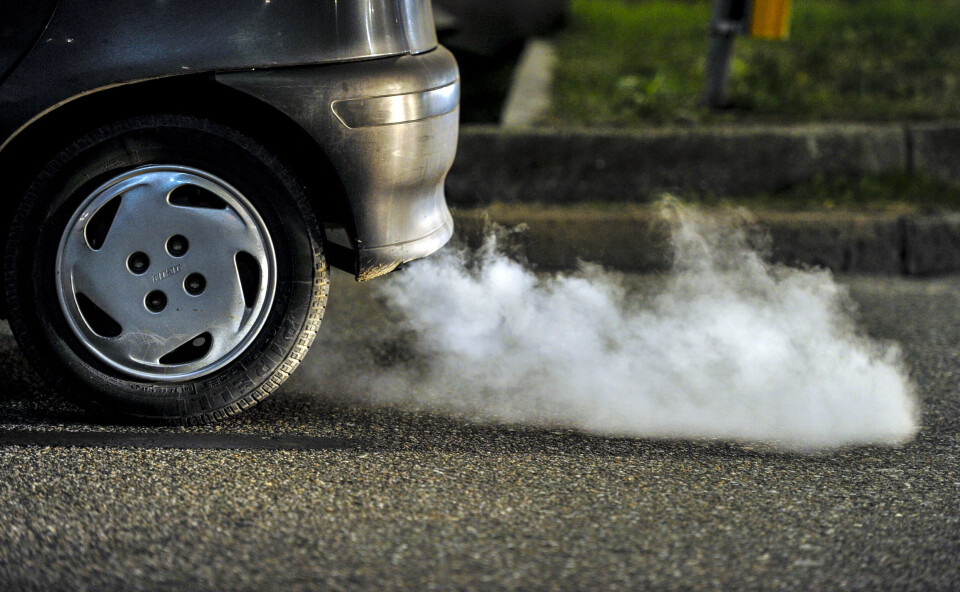-
French MPs vote in favour of renewed recognition of UK medical degrees
Post-Brexit rules mean UK degree holders have been limited in their ability to work in France
-
New storm to hit waterlogged western France
Storm Pedro will bring gales of up to 140 km/h. Red flood alerts remain as death toll from recent weather conditions rises to three
-
Sex on work trip classified as workplace accident under French labour law
Classification requires employers inform the inspection du travail of the event within the 12 hours of an incident
Why drivers risk a fine in our French city if they leave engine idling
In Nancy, it is illegal to leave your engine running while not driving. We asked two local officials the reasons behind the decision

Nancy (Meurthe-et-Moselle) has become the first known French city to enforce a by-law fining drivers who leave their engines running while stopped at the side of the road.
Drivers will be fined €135 if they are spotted with their engine running while not driving after Mathieu Klein, Nancy’s Parti Socialiste mayor, issued a local decree to address “public health and energy saving” concerns.
The rules do not apply to people who are stopped at red lights or caught up in a queue, only those who are not in the act of driving.
Nancy’s municipality stated that such restrictions are already enforced in London, Belgium and Switzerland and that the new rule was a reactivation of a French law from November 12, 1963 that had fallen into disuse.
It comes as more and more laws are adopted in a bid to reduce France’s carbon footprint, as part of a governmental policy referred to as “energy restraint” by President Emmanuel Macron.
Read more: French shops to be required to keep doors closed while aircon is on
“Every measure taken to change our collective behaviour is worth taking. This by-law is a small step to pass on a message,” Laurent Watrin from Nancy’s local authority told The Connexion.
The decision is part of a broader policy to transform the city within five years with a €300million reshuffle of its infrastructure that looks to develop more public services, cycling lanes and greener public areas.
“I hope the by-law will help Nancy to become a trailblazer in civic responsibility and eco-friendly behaviour,” said Quentin Parisot, road safety instructor and president of the Nancy-based ‘roule’ association.
Read more: French supermarkets agree to energy-saving measures to control prices
‘Restraint has become an imperative’
The €135 fine is the only way to make drivers recognise their responsibility in reducing pollution, said Mr Parisot, who has previously noticed that many drivers fail to turn off their engines when parked or stopped for short periods of time.
Mr Parisot was referring to the lessons he took in 2017 when training to become a road safety instructor, during which instructors did not turn the engine off while parking at the side of the road.
Likewise, Mr Watrin remembered one occasion when he asked a woman who had stopped with her engine and air conditioning on and windows open to turn the car off. The woman responded by shouting at him
He also mentioned a time when workers from JC Decaux, a French multinational company known for its bus-stop advertising systems, were spraying water on a billboard while having left the engine of their truck running.
Nancy’s new law can also be linked to the growing ‘eco-driving’ phenomenon, a style of driving that looks to reduce energy consumption and limit emissions by adopting measures such as driving 10kph slower on motorways.
“Restraint has become an imperative behaviour,” Mr Watrin told The Connexion.
“Either we organise it collectively or reality will do it for us. And it will be very uncomfortable for every one of us,” said Mr Watrin, adding that the decision was meant to be ''brutal” and ''extreme” so that people understand the need to reduce energy consumption.
Mr Pariscot and Mr Watrin’s words chimed with a video published recently on Twitter by La France Insoumise MP François Ruffin, in which the cars of government members were seen idling outside the Assemblée Nationale with their engines running to keep the aircon on.
Dedans, les grands discours sur la canicule et sur l'environnement. Dehors, les voitures des ministres, leurs escortes, moteurs qui tournent, sous 40°C.
— François Ruffin (@Francois_Ruffin) June 26, 2019
Je fais mon Yann Barthès dans la cour de l'Assemblée. pic.twitter.com/qsz3UAmKkp
Mr Ruffin’s video was intended to reveal a behavioural double standard from members of the government, who were, at that moment, engaged in a debate on laws aimed at finding ways of reducing France’s energy consumption and carbon footprint.
The government recently issued decrees requiring shops to close their doors when running the air conditioning or heating.
It is estimated that leaving doors open while the air conditioning is on uses 20% more energy.
These energy-saving measures have been partly prompted by soaring energy prices caused by the war in Ukraine.
French energy companies and members of the government have warned of the potential for shortages and rationing during the winter if the overall consumption does not decrease.
Related articles
Ukraine, energy, pensions: Key points of Macron’s July 14 interview
France is at risk of energy shortages and rationing, says minister
French energy companies call for immediate action to cut back on usage
























